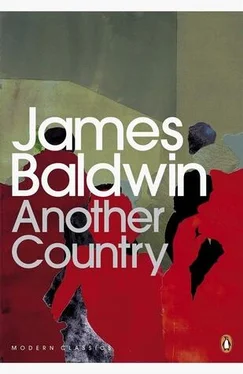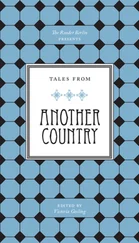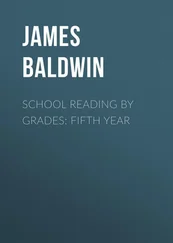And he had fled, so he had thought, from the beat of Harlem, which was simply the beat of his own heart. Into a boot camp in the South, and onto the pounding sea.
While he had still been in the Navy, he had brought back from one of his voyages an Indian shawl for Ida. He had picked it up someplace in England. On the day that he gave it to her and she tried it on, something shook in him which had never been touched before. He had never seen the beauty of black people before. But, staring at Ida, who stood before the window of the Harlem kitchen, seeing that she was no longer merely his younger sister but a girl who would soon be a woman, she became associated with the colors of the shawl, the colors of the sun, and with a splendor incalculably older than the gray stone of the island on which they had been born. He thought that perhaps this splendor would come into the world again one day, into the world they knew. Ages and ages ago, Ida had not been merely the descendant of slaves. Watching her dark face in the sunlight, softened and shadowed by the glorious shawl, it could be seen that she had once been a monarch. Then he looked out of the window, at the air shaft, and thought of the whores on Seventh Avenue. He thought of the white policemen and the money they made on black flesh, the money the whole world made.
He looked back at his sister, who was smiling at him. On her long little finger she twisted the ruby-eyed snake ring which he had brought her from another voyage.
“You keep this up,” she said, “and you’ll make me the best-dressed girl on the block.”
He was glad Ida could not see him now. She would have said, My Lord, Rufus, you got no right to walk around like this. Don’t you know we’re counting on you?
Seven months ago, a lifetime ago, he had been playing a gig in one of the new Harlem spots owned and operated by a Negro. It was their last night. It had been a good night, everybody was feeling good. Most of them, after the set, were going to make it to the home of a famous Negro singer who had just scored in his first movie. Because the joint was new, it was packed. Lately, he had heard, it hadn’t been doing so well. All kinds of people had been there that night, white and black, high and low, people who came for the music and people who spent their lives in joints for other reasons. There were a couple of minks and a few near-minks and a lot of God-knows-what shining at wrists and ears and necks and in the hair. The colored people were having a good time because they sensed that, for whatever reason, this crowd was solidly with them; and the white people were having a good time because nobody was putting them down for being white. The joint, as Fats Waller would have said, was jumping.
There was some pot on the scene and he was a little high. He was feeling great. And, during the last set, he came doubly alive because the saxophone player, who had been way out all night, took off on a terrific solo. He was a kid of about the same age as Rufus, from some insane place like Jersey City or Syracuse, but somewhere along the line he had discovered that he could say it with a saxophone. He had a lot to say. He stood there, wide-legged, humping the air, filling his barrel chest, shivering in the rags of his twenty-odd years, and screaming through the horn Do you love me? Do you love me? Do you love me? And, again, Do you love me? Do you love me? Do you love me? This, anyway, was the question Rufus heard, the same phrase, unbearably, endlessly, and variously repeated, with all of the force the boy had. The silence of the listeners became strict with abruptly focused attention, cigarettes were unlit, and drinks stayed on the tables; and in all of the faces, even the most ruined and most dull, a curious, wary light appeared. They were being assaulted by the saxophonist who perhaps no longer wanted their love and merely hurled his outrage at them with the same contemptuous, pagan pride with which he humped the air. And yet the question was terrible and real; the boy was blowing with his lungs and guts out of his own short past; somewhere in that past, in the gutters or gang fights or gang shags; in the acrid room, on the sperm-stiffened blanket, behind marijuana or the needle, under the smell of piss in the precinct basement, he had received the blow from which he never would recover and this no one wanted to believe. Do you love me? Do you love me? Do you love me? The men on the stand stayed with him, cool and at a little distance, adding and questioning and corroborating, holding it down as well as they could with an ironical self-mockery; but each man knew that the boy was blowing for every one of them. When the set ended they were all soaking. Rufus smelled his odor and the odor of the men around him and “Well, that’s it,” said the bass man. The crowd was yelling for more but they did their theme song and the lights came on. And he had played the last set of his last gig.
He was going to leave his traps there until Monday afternoon. When he stepped down from the stand there was this blonde girl, very plainly dressed, standing looking at him.
“What’s on your mind, baby?” he asked her. Everybody was busy all around them, preparing to make it to the party. It was spring and the air was charged.
“What’s on your mind?” she countered, but it was clear that she simply had not known what else to say.
She had said enough. She was from the South. And something leaped in Rufus as he stared at her damp, colorless face, the face of the Southern poor white, and her straight, pale hair. She was considerably older than he, over thirty probably, and her body was too thin. Just the same, it abruptly became the most exciting body he had gazed on in a long time.
“Honeychild,” he said and gave her his crooked grin, “ain’t you a long ways from home?”
“I sure am,” she said, “and I ain’t never going back there.”
He laughed and she laughed. “Well, Miss Anne,” he said, “if we both got the same thing on our mind, let’s make it to that party.”
And he took her arm, deliberately allowing the back of his hand to touch one of her breasts, and he said, “Your name’s not really Anne, is it?”
“No,” she said, “it’s Leona.”
“Leona?” And he smiled again. His smile could be very effective. “That’s a pretty name.”
“What’s yours?”
“Me? I’m Rufus Scott.”
He wondered what she was doing in this joint, in Harlem. She didn’t seem at all the type to be interested in jazz, still less did she seem to be in the habit of going to strange bars alone. She carried a light spring coat, her long hair was simply brushed back and held with some pins, she wore very little lipstick and no other make-up at all.
“Come on,” he said. “We’ll pile into a cab.”
“Are you sure it’s all right if I come?”
He sucked his teeth. “If it wasn’t all right, I wouldn’t ask you. If I say it’s all right, it’s all right .”
“Well,” she said with a short laugh, “all right, then.”
They moved with the crowd, which, with many interruptions, much talking and laughing and much erotic confusion, poured into the streets. It was three o’clock in the morning and gala people all around them were glittering and whistling and using up all the taxicabs. Others, considerably less gala — they were on the western edge of 125th Street — stood in knots along the street, switched or swaggered or dawdled by, with glances, sidelong or full face, which were more calculating than curious. The policemen strolled by; carefully, and in fact rather mysteriously conveying their awareness that these particular Negroes, though they were out so late, and mostly drunk, were not to be treated in the usual fashion; and neither were the white people with them. But Rufus suddenly realized that Leona would soon be the only white person left. This made him uneasy and his uneasiness made him angry. Leona spotted an empty cab and hailed it.
Читать дальше












